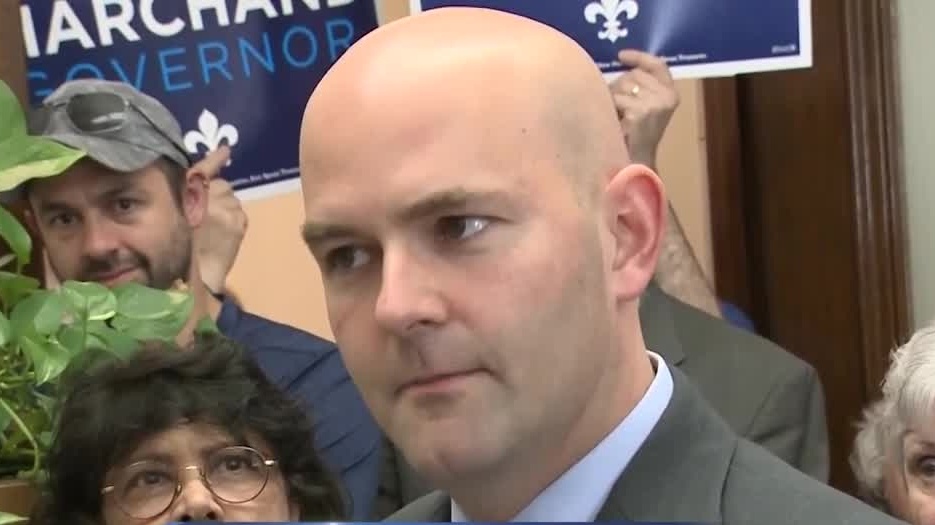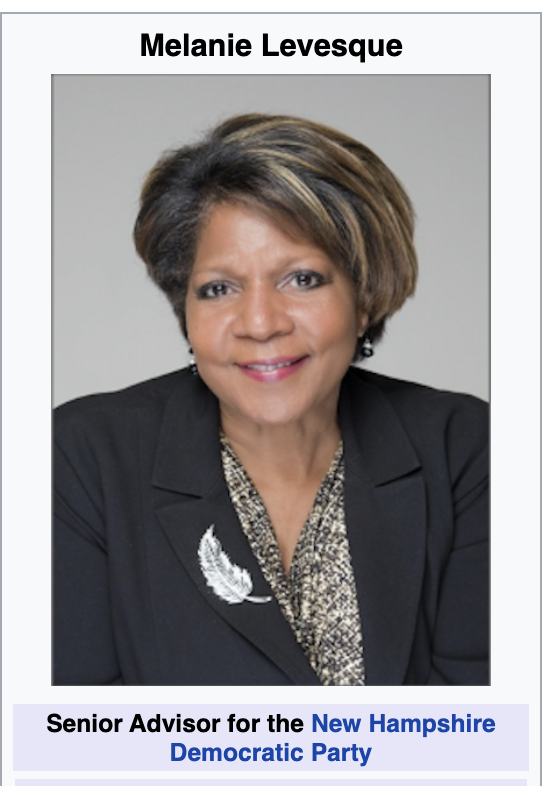AG Hits Marchand With Warning Over Deceptive Election Materials

Call him Steve Two Times.
Steve Marchand, the twice-failed progressive candidate for governor, was issued the second warning of his political career by the New Hampshire Attorney General’s Office, this one for deceptive campaign materials.
Assistant Attorney General Brendan O’Donnell sent Marchand a letter Wednesday stating that he is responsible for double-sided handbills targeting former Portsmouth Mayor Rick Becksted and former City Councilors Paige Trace, Petra Huda, Peter Whelan and Esther Kennedy in the 2021 election. However, that investigation is being closed without further action.
Marchand violated state campaign law with the handbills that he admits he paid for by failing to disclose his name on the materials. But he won’t be charged since he claimed to have acted alone, according to O’Donnell’s letter.
Under the United States Supreme Court ruling in McIntyre v. Ohio, individuals are exempted from disclosure laws as long as they are acting alone and not part of an organized campaign. Marchand earns his living as a political consultant.
Marchand did not respond to a request for comment.
Last year, Assistant Attorney General Myles Matteson concluded Marchand was responsible for the anonymous Preserve-Portsmouth.com and other websites targeting Becksted, Trace, Huda, Whelan, and Kennedy. Again, Marchand was let off with a warning based on the McIntyre ruling.
Marchand targeted the five public officials with anonymous websites, fliers, and robo texts, painting them as too conservative for the city and linking them to former President Donald Trump. According to documents obtained by the Attorney General’s Office, Marchand planned to depress voter turnout among Republicans in order to benefit Democrats on the ballot.
According to Matteson’s letter, Marchand initially lied to investigator Anna Croteau when she questioned him about his part in the campaign.
“When she first asked about Preserve-Portsmouth.com, you stated that you had heard of the website. You denied you had ever claimed responsibility for the website but noted that other people had been saying you were responsible for it,” Mattson wrote.
However, Croteau already had screenshots of a text conversation in which Marchand took credit for the content of the websites.
“To be very clear, I am the one to create the content,” Marchand wrote in the text.
The legal opinion that Marchand acted alone based on his own statements to investigators seems to fly in the face of the evidence of collaboration uncovered in the investigation.
The Attorney General’s Office has records of Marchand’s communications with at least four other people about the campaign, in which he stated the goal was to create guilt by association aimed at the targeted candidates, linking them to Trump in the mind of Portsmouth voters.
“(i)s really meant to help get Democrats who gave Becksted and others a vote in 2019 to really think about what they were doing in 2021,” Marchand wrote.
Matteson wrote the purpose of the anonymous campaigns clear from Marchand’s statements to the others involved.
“It is clear from your own correspondence and admissions that your intended purpose of the site was to influence the Portsmouth City Council election,” Matteson wrote.
Marchand’s campaign seemed to work, as none of the candidates targeted by Marchand won their races.
Marchand lost Democratic gubernatorial primaries to Colin Van Ostern in 2016 and Molly Kelley in 2018. In both campaigns, Marchand painted himself as a progressive champion when he ran, calling for tighter gun control, universal healthcare, and opposition to the Northern Pass electric transmission line project.
Marchand also ran a failed primary campaign from the left against Democratic U.S. Sen. Jeanne Shaheen in 2008. He hasn’t yet declared any plans for a second race for Senate.


 But Thursday morning, she dropped her recount demand and instead released a statement announcing her intent to challenge current Secretary of State David Scanlan. The secretary of state is selected by the state legislature.
But Thursday morning, she dropped her recount demand and instead released a statement announcing her intent to challenge current Secretary of State David Scanlan. The secretary of state is selected by the state legislature.

